Media | Articles
How to safely recycle tires, fluids, and scrap metals
Proper fluids and lubricants keep our cars and trucks operating in top condition. But when it’s time for them to be replaced, it’s just as important that they be disposed of responsibly and safely. That care also extends to the tires, batteries, and the worn-out parts that can accumulate after a maintenance session. Let’s take a look:
Motor Oil
Motor oil is hazardous to the environment and can contaminate groundwater, so it should never be allowed to drain into the ground or onto the street. Luckily, while used oil does get dirty from combustion and additives that break down with use, the base oil is recyclable and can be processed into useful lubricants. Drain your vehicle’s used oil into a clean plastic container that can be secured with a lid for safe transport, and don’t mix in any other fluids with it. Most auto parts stores will collect your used motor oil and filter for free, and many scrap metal shops accept used oil filters, too.
Other fluids
It may be more difficult to find a place that will accept your old gear lube, coolant, transmission fluid, or brake fluid, but you can check with either your local government’s waste management department. Alternatively, the Earth 911 website has an easy-to-use locator that can point you to the nearest recycling facility. As with your oil, drain the fluid into a clean plastic container with a secure lid and don’t mix fluids; doing so will contaminate them and make them more difficult to recycle.
Batteries

Old batteries can leak acid, posing a safety risk to those that may end up handling them. However, both the plastic case and lead internals are recyclable. You should be able to return a battery to an auto parts store if you just purchased a replacement, sometimes for a modest store credit. Otherwise, check your local waste management department for locations that accept household hazardous materials and other automotive maintenance products, including aerosol cans containing solvents.
Tires

Used tires can typically be turned in for recycling or disposal at your local tire store for a nominal fee. This disposal fee is often included in the purchase of new tires, but it might be easier to contact your state or local waste management department to find a more affordable way to dispose of tires.
Marketplace
Buy and sell classics with confidence
Metal
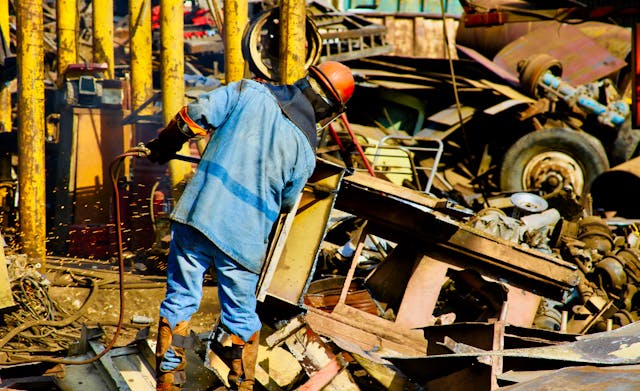
If you have worn brake drums or rotors, extra sheetmetal from a donor car, a bent or cracked wheel, even a bad cylinder head or other cast-metal engine part, your local metal scrap yard will likely pay you for it. Parts with copper (such as the starter or alternator) and aluminum are even more valuable! There’s always a market for recycling metal (as catalytic converter thieves unfortunately understand) so if you don’t have the means to deliver it, you’re usually only one Craigslist or Yellow Pages visit away from a scrap-metal recycler that will come and pick it up for free.
***
Maintenance to minimize your environmental footprint
Restoration and maintenance help keep our beloved vintage vehicles running and on the road; it also keeps them out of the junkyard and, as a result, reduces their environmental impact. So consider these points:
Tire selection
Tires are the vital connection between vehicle and road, yet many enthusiasts give them nothing more than a passing thought. Removing stylish oversized tires for factory-correct-sized tires will likely last longer and also increase fuel economy, both of which decrease the consumption of fossil fuels and release of CO2. If maximum performance isn’t needed, consider getting passenger car tires rated as “low rolling resistance” to maximize your fuel economy.
Oil lifespan
For a vehicle that is rarely driven, you don’t need to stick to the traditional “change it every three months” rule. If the thought of running your oil a little longer keeps you up at night, take a scientific approach for peace of mind; send the oil out for testing by a lab (such as Blackstone Labs) and you will learn how far you can safely run your oil without ever going too far.
Quality above all
High-quality parts typically last longer than cheaper parts yet require similar amounts of energy to produce. Spending the extra money up front to keep poorly made parts out of landfills will pay off in the long term.
Extended paint life
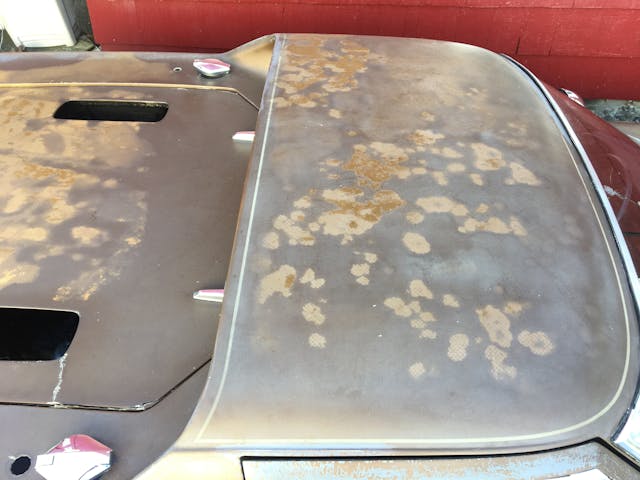
Paint work—even using modern, water-based systems—is quite harsh on the atmosphere. Work on preserving paint if for no other reason than that it keeps corrosion at bay, which extends the life of your beloved car.
Tight and dry
The joke that “If it ain’t leaking oil, it doesn’t have oil” should remain that—a joke. Strive to maintain a vehicle that holds all its fluids, all the time. Pennies make dollars, and small oil leaks eventually add up to quarts on the ground.
***
Check out the Hagerty Media homepage so you don’t miss a single story, or better yet, bookmark it. To get our best stories delivered right to your inbox, subscribe to our newsletters.










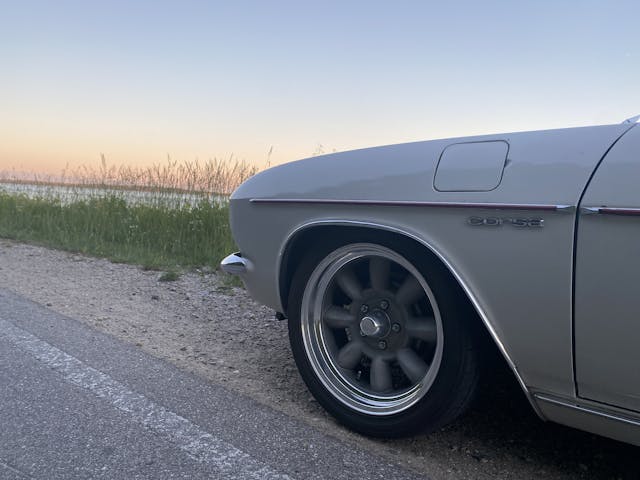
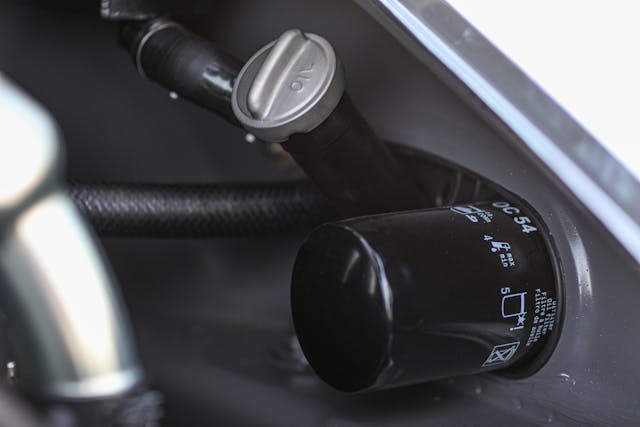

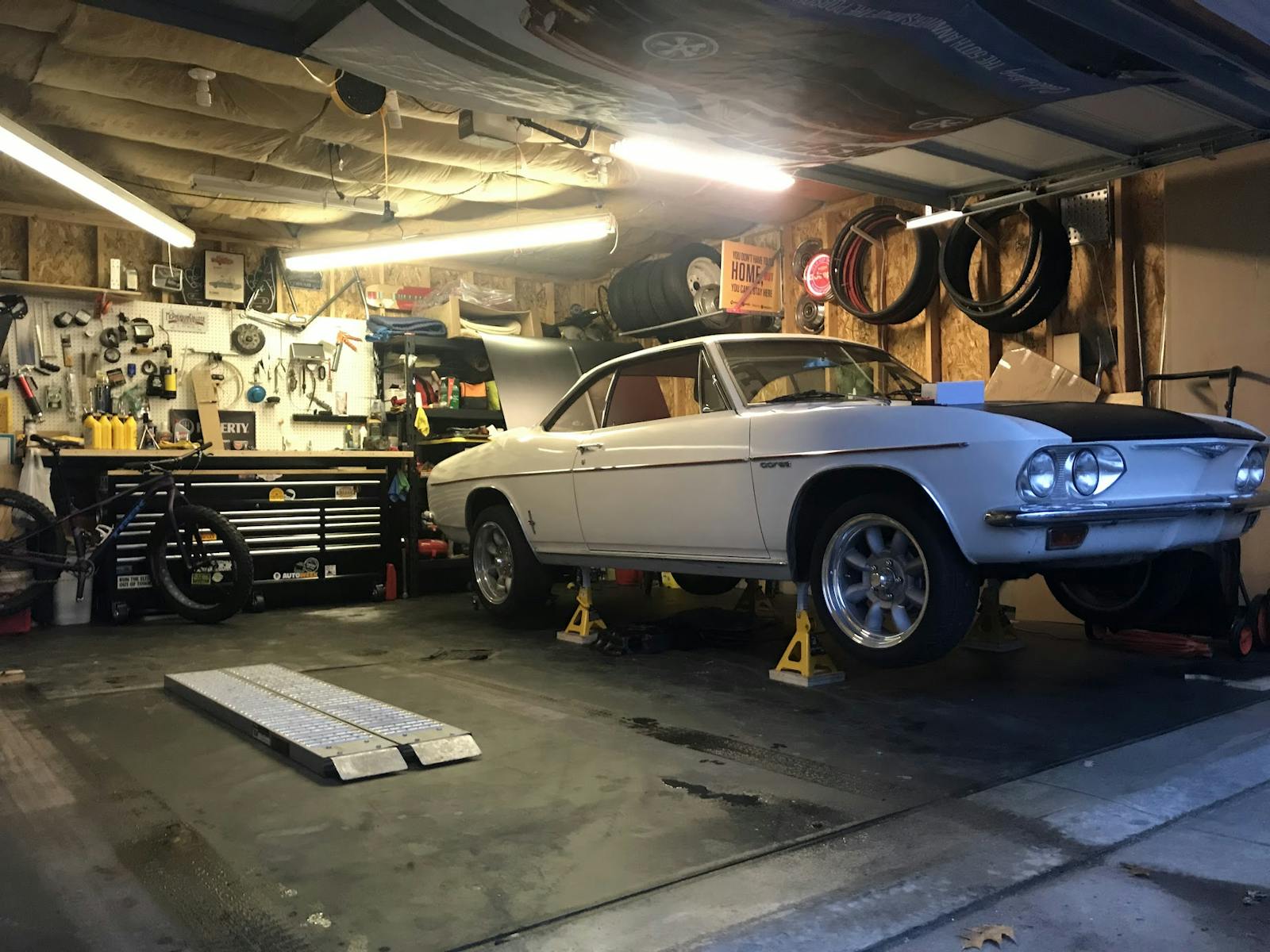






What to do with 10+ gallons of really old gas? Starting the occasional bonfire and using it as a smelly degreaser isn’t really using it up at the rate that I’d like it to be gone. I haven’t found anywhere willing to take it.
Sell it to a taxi driver for half the pump price.
Don’t resell really old gasoline. Not fair to an unsuspecting buyer.
To clarify, don’t sell without full disclosure. Old gasoline can contain impurities, such as (condensed) water, etc.
If it is pre-ethanol lobby, it might also be just fine.
From my research, gasoline is treated just like oil and coolant. Check your local government’s waste management department, mine says they take gasoline (according to their website).
Back when I was moving lots of old cars with old gas, I had a Chevy Big 10 with dual tanks. Junk gas went in the second tank – I switched over to ‘old’ when the truck was well warmed up and running under light load. Heavy load, cold engine, or big hill, I switched to the ‘fresh’ tank.
if you have a local fuel distributor check with them for disposal of old fuel
The last two places I’ve lived (Springfield, VA and Meridian, ID, both have “hazardous waste” recycling programs. In Meridian, we have to take pld gasoline to the waste transfer station on Mondays.
I don’t think I’ve had as much as 10 gallons all at once, but I have found that mixing a bit of old gas in with new for some applications (ranch truck and tractor, mowers, tillers, etc.) is one way to use it up. I would suggest something like 10 parts new to 1 part old at least. I surely wouldn’t run it in a performance engine, but if I was filling up a 20-gallon tank in my “trip car”, I might pour a gallon of the old stuff in. This may not be the very BEST use of old gas (and I guess “how old and bad is it? might be pertinent), but if you can’t find another way in your locale, it is A way…
Don’t put it in a small engine like a lawn mower.
That’s a good idea. I wouldn’t mind trying it out in my beater-daily-driver high mileage crap-can. I’m wary of putting it in my older carbureted trucks and the poppin-John tractor since it takes me a while to go through a tank in those. The gas is very old, the newest that it can be is 8 years, although some of it is older than that. It’s a combination of what came out of some non-running project cars that I’ve drug home over the years.
Yep, I think “sparse” mix ratio and “quick” use-up are the watchwords if you try it.
Generally the autoparts stores near me have been good for most things but strike up a relationship with a service manager at a dealer. They may take it for you.
I’ve always recycled my drain oil. Years ago I was living in a larger city and an anonymous neighbor called and said I was dumping my drain oil down the catch basin in front of my garage. The city inspector came over and shined a flashlight down storm sewer. He said I see no oil down there. I showed him my 2 five gallon jugs for drain oil in my garage. I dumped it at my work, they had a 500 gallon tank for the maintenance garage. I ask inspector who called complaint in and he said by law it was anonymous and he couldn’t divulge info. So I could get fined by someone’s BS call and they face no repercussions. Nice. Needless to say I moved 20 minutes away with farm fields around me. Never had a problem after that
Jeepcj5: Experience tells me that a B John Deere will burn anything of any age. Mine sat for years, ok decades, and started right up with the old gas from 2001.
My 1944 John Deere model D starts on gas then I switch to diesel when it’s warmed up. All my old fuel ,gas , diesel ,mixed gas goes in the main tank.
Here in North Dakota we burn Bakken Crude oil straight from the well (get it when no workers are nearby) in an old John Deere D and also in our LA Case tractor. Works good as an accelerant to burn the garbage barrel. Obviously we live on a farm!
A good article about closing the loop on responsible car ownership which will be unheeded by most collector car buffs to the detriment of us all. Thank you, Sajeev.
It’s interesting to learn that we’d recycle our car’s tires and other parts. My cousin’s car was damaged in a trucking accident, and he wants to get rid of it because it can’t be repaired without spending a fortune. I’ll call him later and suggest he researches recycling centers to dispose of his car. http://www.bibbscash4cars.com/junk-my-vehicle/
I never took into account the fact that copper and aluminum are the metals with the most valuable rates because there will always be a market for those items. In that case, might be able to sell the items that we found in my dad’s garage if we find a proper copper recycling establishment or center here in Hollister, California. The money that we can get from it can also be used to help fund the renovation of the garage of my dad because it has been very unorganized and a mess for the longest time. https://www.ranchtownrecycling.com/copper